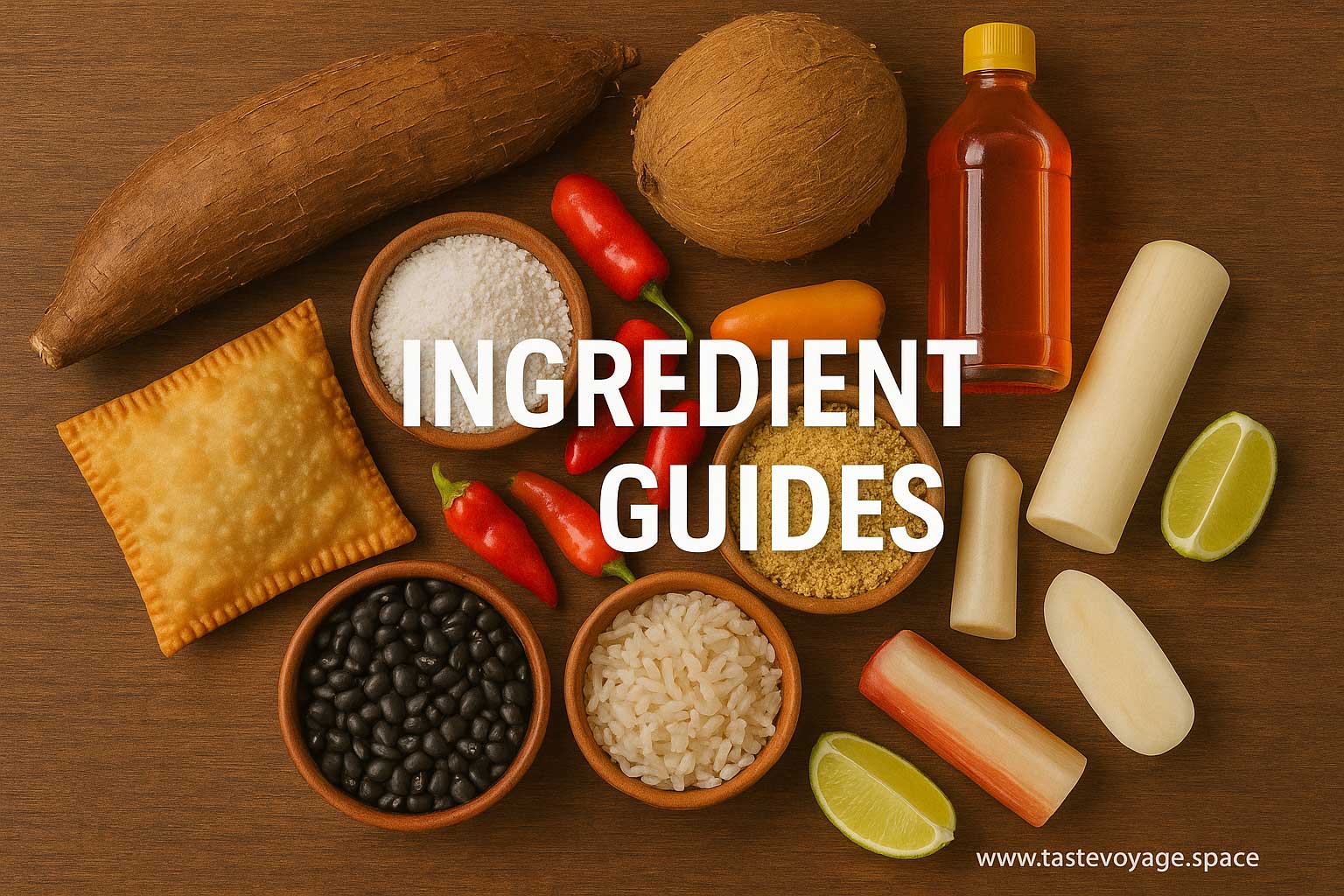Ultimate Guide to Brazilian Cooking Oils: Flavors & Uses
Travel the World Through Food >> Brazilian Cuisine>>Ingredient Guides>> Ultimate Guide to Brazilian Cooking Oils: Flavors & Uses
Ultimate Guide to Brazilian Cooking Oils: Flavors & Uses
Exploring the Richness of Brazilian Cooking Oils
Brazilian cuisine is celebrated worldwide for its vibrant flavors, diverse ingredients, and unique culinary traditions. Central to many Brazilian dishes are the cooking oils that bring out the authentic taste and aroma of local ingredients. In this guide, we delve into the cultural and culinary significance of Brazilian cooking oils, highlighting their importance in shaping the country’s culinary identity.
The Heart of Brazilian Flavor: Cooking Oils
Brazilian cooking oils are more than mere ingredients; they embody the country’s rich agricultural heritage and culinary artistry. They serve as the foundation for countless Traditional Recipes, from hearty stews to delicate pastries. The choice of oil influences the dish’s aroma, flavor, and authenticity, making it an essential component in Brazilian kitchens.
Common Types of Brazilian Cooking Oils
Brazilian cuisine employs a variety of cooking oils, each with its unique flavor profile and cultural importance:
– Palm Oil (Dendê): Known for its vibrant orange hue and rich, earthy flavor, palm oil is a staple in dishes like acarajé and moqueca. It adds depth and color, enhancing both taste and appearance.
– Coconut Oil: Widely used in coastal regions, coconut oil imparts a subtle sweetness and fragrance. It’s essential in recipes such as bobó de camarão and other seafood dishes.
– Soybean Oil: As one of the most common vegetable oils in Brazil, soybean oil offers a neutral flavor suitable for various Cooking Methods, from frying to sautéing.
– Peanut Oil: Valued for its nutty aroma, peanut oil complements many regional dishes, especially in the southeastern parts of Brazil.
Cultural Significance of Cooking Oils in Brazil
In Brazilian culinary culture, cooking oils symbolize more than flavor enhancement—they reflect regional identities and traditional practices. For example, the use of palm oil in Bahian cuisine highlights the region’s lush landscape and agricultural produce. Coconut oil’s popularity along Brazil’s coast underscores the island-like connection and maritime influence.
These oils often play a role in communal cooking traditions, connecting families and communities through shared culinary practices. They help preserve regional flavors and contribute to the distinctiveness of Brazilian regional cuisines.
Culinary Significance and Food Heritage
Brazilian cooking oils are integral to the preparation of iconic dishes that define the country’s food heritage. They enable chefs and home cooks to create authentic flavors that honor local ingredients and culinary techniques. Moreover, these oils add sensory richness—be it through aroma, color, or mouthfeel—that elevates everyday meals to cultural expressions.
The versatility of Brazilian oils allows for diverse cooking styles, from frying and sautéing to slow-cooking and marinating. They facilitate the development of complex flavors, making Brazilian dishes memorable and deeply rooted in tradition.
Celebrating Brazil’s Culinary Diversity
Brazilian cooking oils exemplify the country’s culinary diversity and resourcefulness. They reflect the natural abundance of Brazil’s landscapes and the ingenuity of its cooks. Whether it’s the earthy notes of palm oil or the fragrant sweetness of coconut oil, each contributes to a vibrant mosaic of flavors that make Brazilian cuisine unique.
Final Thoughts
Understanding the role of cooking oils in Brazilian cuisine offers a deeper appreciation of the country’s culinary landscape. These oils are more than ingredients—they are cultural symbols that connect communities, reflect regional identities, and preserve culinary heritage. Embracing the rich variety of Brazilian cooking oils enhances our experience of this vibrant cuisine, inviting us to explore its flavors with respect and admiration.
By celebrating Brazilian cooking oils, we honor a vital aspect of Brazil’s food culture. Their flavors and significance continue to inspire cooks around the world, enriching global culinary traditions with their vibrant History and unique character.
